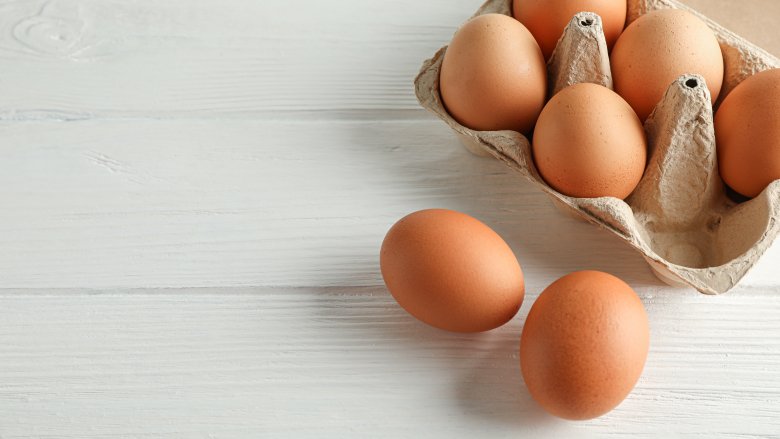Can You Freeze Eggs?
If you have a surplus of eggs that you just can't eat (or give away) fast enough, you might have wondered if you can freeze your extras. The good news is you can freeze eggs, but it might not be quite as simple as you think.
For starters, the USDA says that eggs in the shell should not be frozen. The reason behind this is basic science — when liquid freezes, it expands, and this applies to raw eggs as well. This means a freezing egg will likely crack the shell, which can either be a big mess if the innards aren't quite frozen yet, or you're risking introducing bacteria to the egg. Neither scenario is appealing, so forget the easy method of just tossing them in your freezer to use later.
According to The Incredible Egg (which is part of the American Egg Board), there is another way to freeze eggs. First, you must liberate them from their shells. If you just want to freeze the whites, separate them carefully, pour them into a freezer-safe container, and seal thoroughly (you can even use a clean ice cube tray). Label with the number of egg whites and the date, and freeze.
If you want to save the yolks separately, you'll need to add an extra step to the process because yolks become gelatinous after freezing and you probably won't be able to mix them in a recipe later. For each 1/4 cup of yolks (around four yolks total), beat them together with 1/8 teaspoon salt or 1-1/2 teaspoons sugar or corn syrup. Again, pour into containers and freeze. Don't forget to label with the date and number, as well as what you mixed them with, as you won't want to dump salty egg yolks into your cake mix six months down the road.
If you want to freeze whole eggs to use later, beat them until just blended, pour into containers, seal tightly, label with number of eggs and date, and freeze.
You can keep eggs frozen in your home freezer for up to a year. Thaw them overnight in your refrigerator to use, and use egg yolks or whole eggs right after thawing. You will probably find that egg whites do better if they're left on the counter for around 30 minutes before using.
So, the short answer is yes, you can freeze eggs, but you have to crack them out of their shells and make sure you're doing it correctly.
